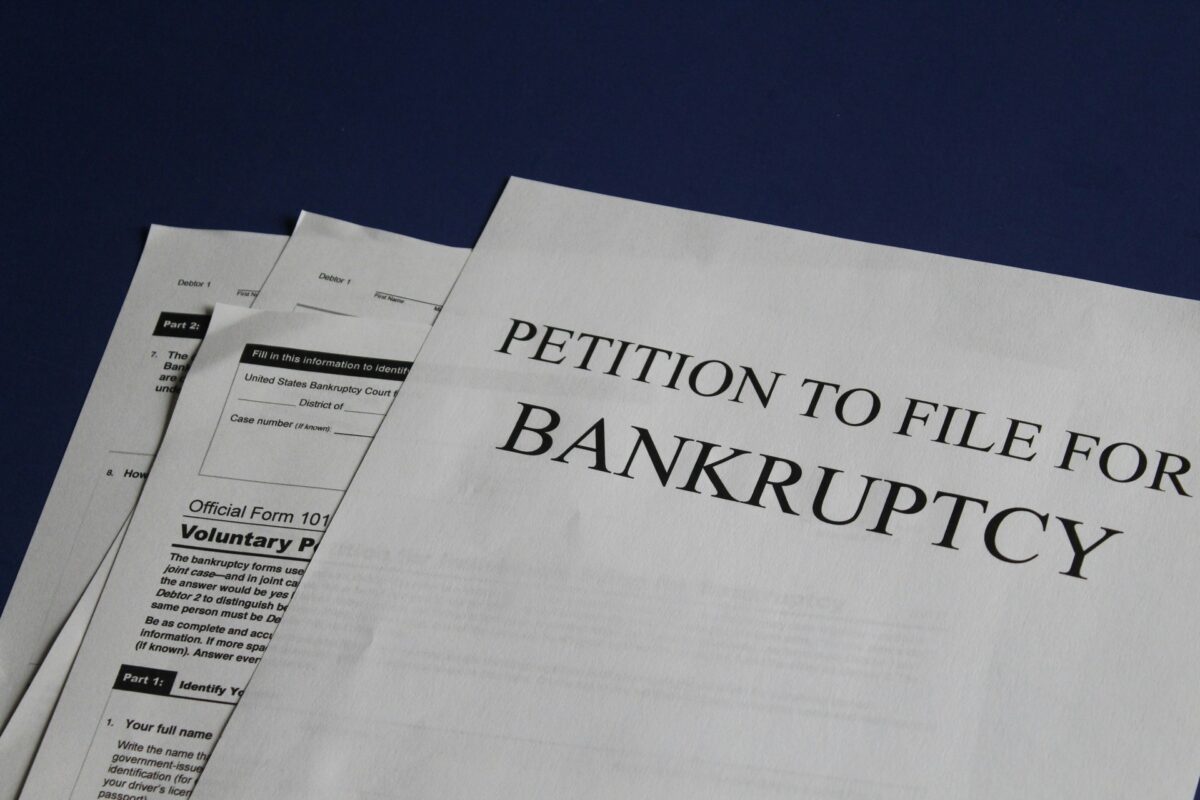Filing bankruptcy in Kentucky generally does not directly affect your spouse unless you have joint debts or assets. Your spouse’s separate property and credit score remain protected if you file individually, though joint obligations may still impact them.
Financial struggles can place immense strain on a marriage. When considering bankruptcy as a solution, many married couples worry about how their decision might impact their relationship and financial future.
As a board-certified consumer bankruptcy attorney with nearly 30 years of experience, Julie O’Bryan understands these concerns. We regularly help individuals and married couples manage the complexities of bankruptcy while minimizing negative consequences for spouses.
Let’s explore how bankruptcy filings affect spouses in Kentucky and what options are available to protect your family’s financial future with the help of our skilled Louisville bankruptcy attorney.
Will Filing Chapter 7 Affect My Spouse?
Chapter 7 bankruptcy, often called “liquidation bankruptcy,” can significantly impact your spouse, even if they don’t file. The extent of this impact depends on several factors specific to your situation.
In Kentucky, how property is owned makes a essential difference when only one spouse files for bankruptcy. Kentucky is not a community property state but rather a common law property state, which means assets are not automatically considered jointly owned.
If you own property solely in your name, that property becomes part of the bankruptcy estate. However, if property is jointly owned with your spouse, only your interest in that property enters the bankruptcy estate for the bankruptcy trustee to evaluate.
Joint debts remain obligations for your non-filing spouse. This is perhaps the most important consideration when deciding whether to file for bankruptcy individually or jointly.
???? Ownership Structure Matters: Only your share of jointly owned property enters the bankruptcy estate, but proper classification is key in Kentucky’s common law state.
Non-Filing Spouse’s Credit Score
Your spouse’s credit score won’t be directly affected by your bankruptcy. The bankruptcy will only stay on the filer’s credit report.
However, there are indirect effects to consider:
- Joint accounts: If you share credit cards, loans, or other debts with your spouse, your bankruptcy may be noted on those accounts
- Future joint applications: Lenders will see your bankruptcy when you apply for joint credit in the future
Debts in Your Spouse’s Name
Debts solely in your spouse’s name remain entirely their responsibility. Your Chapter 7 bankruptcy will not discharge these obligations.
If your spouse co-signed or guaranteed any of your debts, they remain fully liable for the debt after your bankruptcy discharge. The creditor may pursue collection against your non-filing spouse for joint debt.
Hypothetical Scenario: A husband files Chapter 7 bankruptcy to eliminate $30,000 in credit balances. Some cards are in his name only, while others are joint accounts with his wife. After discharge, the husband is no longer responsible for any of these debts. However, creditors immediately begin contacting his wife about the joint credit card accounts, demanding full payment of the remaining balances.

Will Filing Chapter 13 Affect My Spouse?
Chapter 13 bankruptcy involves a three to five-year repayment plan to pay off creditors and affects spouses differently than Chapter 7 bankruptcy. Knowing these differences is important for Kentucky couples considering this option.
In a Chapter 13 filing, your spouse’s income becomes particularly relevant, even if they don’t file. The court considers your household’s total income when determining your disposable income and establishing your plan to pay creditors.
Non-Filing Spouse’s Income
When you file Chapter 13 without your spouse, their income is still factored into your bankruptcy case through what’s called the “marital adjustment.”
The bankruptcy court will examine:
- Total household income: Both spouses’ earnings
- Household expenses: Shared living costs
- Separate expenses: Costs that benefit only your spouse’s separate property or obligations
This calculation helps determine how much you can reasonably pay to creditors through your Chapter 13 plan.
Protecting Your Spouse in Chapter 13
There are ways to protect your spouse when filing Chapter 13:
Co-debtor stay: Chapter 13 bankruptcy provides a special protection under the bankruptcy code called the “co-debtor stay” that temporarily prevents creditors from pursuing collection against your non-filing spouse for consumer debts.
Payment prioritization: Your Chapter 13 repayment plan can prioritize joint debts to provide maximum protection for your spouse.
Payment of non-dischargeable debts: Some debts that can’t be discharged might be paid through your Chapter 13 plan.
In Kentucky, working with our bankruptcy lawyer experienced in the local courts is essential. The Eastern District of Kentucky Bankruptcy Court and the Western District of Kentucky Bankruptcy Court have specific local rules that affect how Chapter 13 cases proceed.
Hypothetical Scenario: A wife files Chapter 13 bankruptcy with significant medical debt, credit cards, and a car loan. Her husband doesn’t file but has good income. The court considers their combined household income but allows a marital adjustment for the husband’s student loan payments and a separate car payment that doesn’t benefit the wife. After these adjustments, the court approves a Chapter 13 plan the wife can afford based on her contribution to household expenses.

Can I File Bankruptcy Without My Spouse?
Yes, you can file bankruptcy without your spouse in Kentucky. This is known as an individual filing, and it might be the right choice in certain situations.
⚖️ Individual bankruptcy filings can be strategic when one spouse has significantly more debt than the other. This approach allows the spouse with good credit to maintain their credit rating.
When Individual Filing Makes Sense
Filing bankruptcy without your spouse might be beneficial when:
- Your spouse has excellent credit you want to preserve
- Much of the debt is in your name only
- Your spouse owns valuable separate property that could be at risk in a joint filing
- One spouse is a business owner with complex financial arrangements
- You’re concerned about certain professional licenses or security clearances
When Joint Filing Makes More Sense
Filing bankruptcy jointly often makes more sense when:
- You have substantial joint debts
- Both husband and wife have similar debt problems
- You want to maximize exemptions to protect more property
- You wish to save on filing fees and attorney costs
Key Considerations Before Filing Individually
If you’re considering filing bankruptcy without a spouse, consider these factors:
- Current marital status: Your current relationship status matters. Going through a divorce complicates bankruptcy proceedings.
- Joint assets: Kentucky’s property laws affect how property and debt are handled in bankruptcy.
- Recent asset transfers: Transferring assets to your spouse before filing can be viewed as fraudulent.
- Income considerations: Your spouse’s income must be included in the means test calculation, potentially affecting your Chapter 7 eligibility.
| Factor | Individual Filing | Joint Bankruptcy |
|---|---|---|
| Filing Fee | $338 (one fee) | $338 (one fee for both) |
| Attorney Fees | One client fee | Often the same as individual |
| Exemptions | Limited to filing spouse’s share | Can double some exemptions |
| Credit Impact | Only affects filing spouse | Affects both spouses |
| Debt Discharge | Only filer’s debt | Both spouses’ debts |
| Future Bankruptcy | Non-filing spouse can also file later | Both subject to 8-year waiting period |
How Does Bankruptcy Affect Your Spouse?
Beyond the immediate legal and financial implications, bankruptcy could affect your marriage in various ways. Getting to know these potential impacts can help you prepare and maintain a healthy relationship through financial challenges.
Bankruptcy creates both challenges and opportunities for married couples. While the process can be stressful, it can provide debt relief that ultimately strengthens your relationship.
Emotional Considerations
Financial difficulties are consistently cited as a leading cause of marital stress. The bankruptcy process itself can be emotionally taxing, with feelings of:
- Shame or embarrassment: Society often stigmatizes bankruptcy relief
- Relief: Finally addressing overwhelming debt problems
- Anxiety: Concerns about the future and rebuilding credit
- Resentment: If one spouse’s business or financial decisions caused the problems
Open communication with your spouse about finances is essential before, during, and after bankruptcy. Many couples find that financial counseling from an approved agency like the Kentucky Housing Corporation helps establish better money management habits.
Practical Effects on Daily Life
Your spouse will experience practical changes even if they don’t file:
- Joint financial accounts: You’ll likely need to close joint bank accounts or credit accounts.
- Banking arrangements: Some couples choose to maintain separate property and accounts.
- Future borrowing: Your collective borrowing power will be impacted when you apply for new credit.
- Housing decisions: Bankruptcy may affect your ability to buy a house together.
Long-Term Considerations
Looking beyond the immediate bankruptcy process:
- Building credit separately: The non-filing spouse will not be affected directly and may need to maintain separate credit lines.
- Future joint financial goals: Develop clear plans for rebuilding together.
- Financial transparency: Establish regular financial check-ins with your spouse.
- Estate planning adjustments: Update your estate planning documents after bankruptcy.

Making the Right Decision for Your Family
⚖️ Every Couple Has a Unique Financial Blueprint: Don’t copy another couple’s bankruptcy strategy—what protects one family could expose another to unnecessary risk.
Education is your most powerful tool when considering bankruptcy. Both spouses should understand how bankruptcy will affect your spouse regardless of who actually files.
Every marriage and financial situation is unique. What works for one couple may not be appropriate for another.
Our Bowling Green bankruptcy lawyers will help you determine if it’s better to file jointly or individually.
Questions to Ask Together
Before making decisions, discuss these questions with your spouse:
- What debts do we each have individually and jointly?
- How would filing affect our current and future financial goals?
- What nonexempt property might we need to surrender to pay off creditors?
- How would different bankruptcy chapters impact our specific situation?
- What are our post-bankruptcy credit rebuilding strategies?
Getting Expert Advice
The best way to understand how bankruptcy affects your spouse’s credit or other financial interests is to consult with our bankruptcy attorney who can analyze your unique situation.
At our law firm, we provide a free initial consultation to help couples understand their options. Our attorneys take the time to explain how different bankruptcy choices might affect their credit and financial future.
Rebuilding Credit After Bankruptcy
Regardless of whether one spouse files for bankruptcy or you file jointly, rebuilding credit will be important. Our firm doesn’t just help with the bankruptcy process—we also provide guidance on how to rebuild your credit after bankruptcy.
With offices in Louisville, Frankfort, and New Albany, we’re available to help families throughout Kentucky and Southern Indiana make informed decisions about bankruptcy.
Contact us online or call at (502)-219-3081 to schedule your free consultation.


